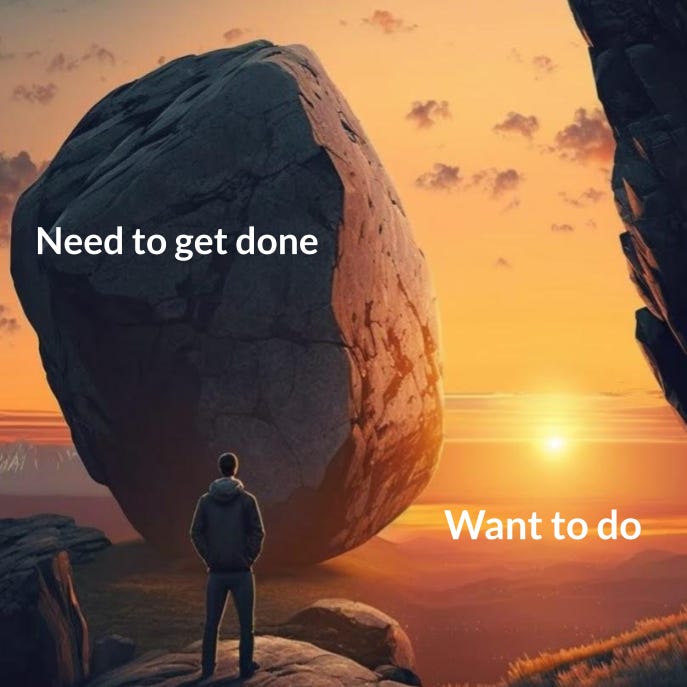Feed the Drift
Protect the Core
The key to happiness is finding what you love doing and then figuring out a way to get paid to do it. For the rest of us living in the real world, we are constantly fighting a battle of attention between the things we want to do and the stuff we need to get done.
In a work setting, this dynamic plays out in what I call drift.
Drift is the pull away from the things we need to get done towards the things we want to be doing. The more repetitive the work is, the stronger the drift tends to be.
For those working in a Customer Support role, this means looking beyond core responsibilities to find fulfillment. But this can apply to any role in your organization.
If this is not managed well, drift will lead to distraction and the effectiveness of your team will erode quickly. But there’s a catch at the other end of the spectrum. Zero drift, or strict adherence to core responsibilities, can result in stagnation and burnout.
Feed the Drift
Curiosity is a soft skill that you need to cultivate in your team. Curious individuals will follow their interests to gain knowledge in new areas. Those interests may not always be aligned with their core responsibilities but the knowledge they gain from exploration helps them to grow and develop into more well-rounded members of your team.
The right level of drift gives curiosity room to breathe.
To do this, you can start by drafting job descriptions and responsibilities that dedicate the majority of time and focus to the core responsibilities of the job but also reserve space for exploration and learning.
In the teams I built at GoFundMe, we used a 6/2 shift split to guide us. In an 8 hour shift each day, team members would spend 6 hours focused on core duties and 2 hours outside of the core. That time could be used at the discretion of the team member.
Protect the Core
In a startup environment where teams are typically lean and work can come in waves, it is important to frame the balance between feeding the drift and protecting the core as fluid. A spike in workload means more time dedicated to the needs vs. the wants. A period of lower volume means more flexibility in terms of how time is spent.
At GoFundMe our business was highly cyclical and prone to wild swings based upon external events. Communication of priorities was critical and when it came time to roll up our sleeves and crush the work that needed to get done, our best performers were able to dial back their curiosity and tap into their hustle.
Drifting to Something New
Our curiosity often leads us beyond the borders of our current role. Periodic trips to this zone are beneficial because we can bring back new ideas to solve old problems. But extended stays are likely a sign that it's time to make a more permanent move.
Giving your team space to explore their interests is giving them space to push their careers forward. It may be scary to think about losing your best team members but if you aren’t helping them to move forward then you are holding them back.
Feed the drift in your team and unleash the power of curiosity.
Further Reading & Resources




